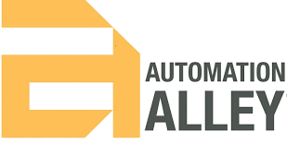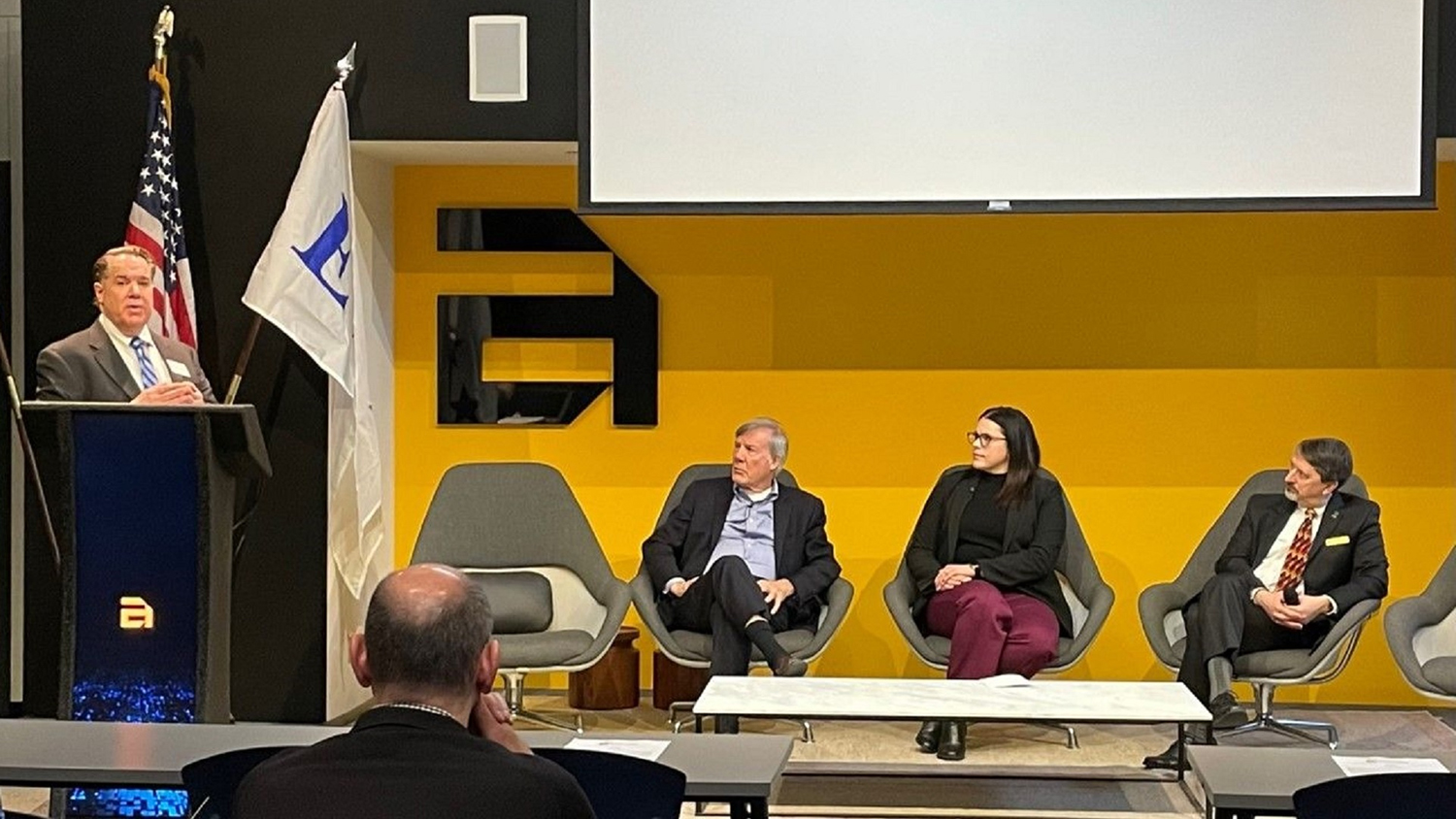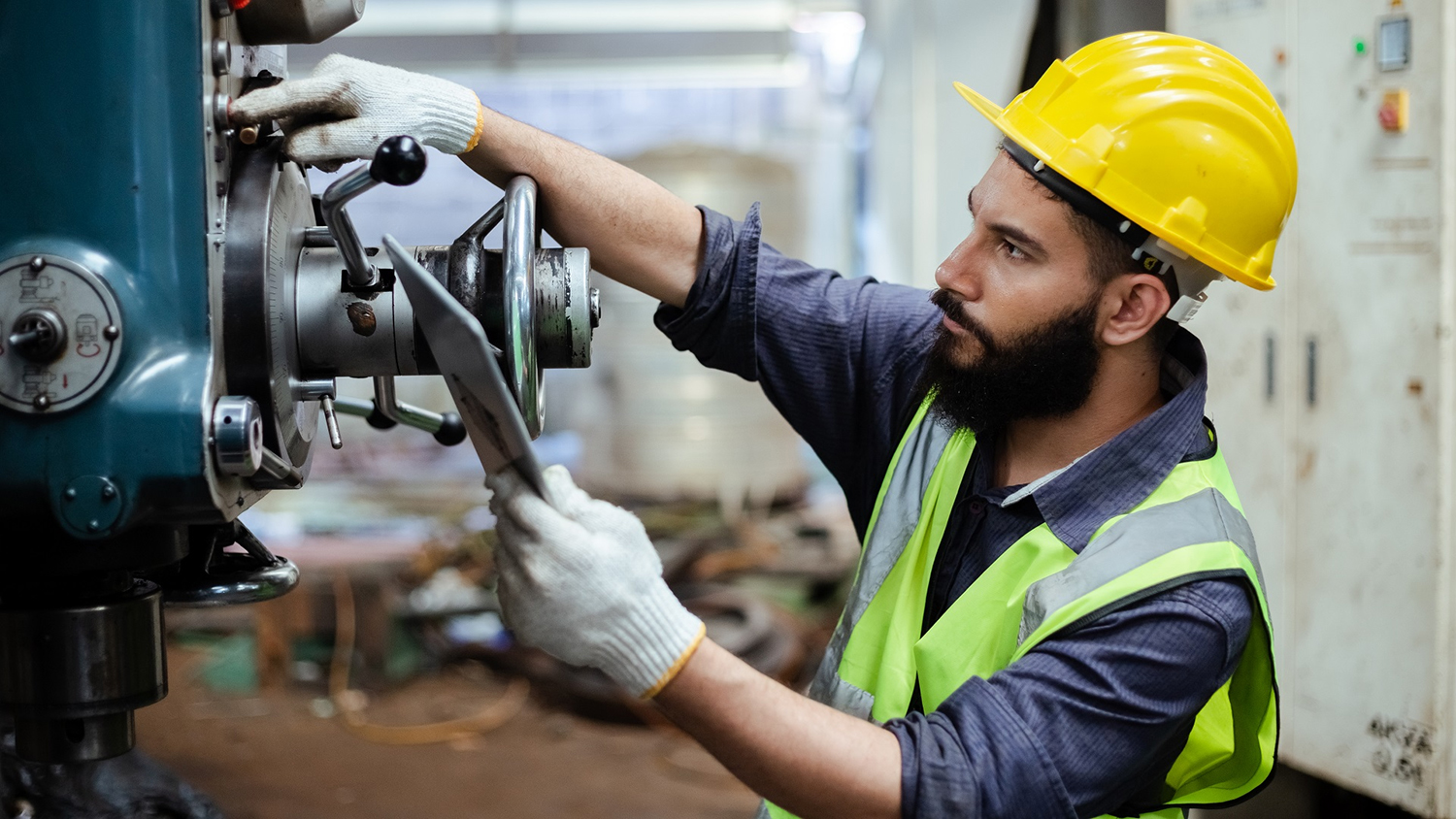
Thought Leadership February 2023
Who is Automation Alley? A Look at Our Industry 4.0 Mission
Why is Automation Alley so focused on Industry 4.0? What happened to Industry 1-3? Where is Industry 4.0 headed in 2023? These questions and more are answered with this look inside Automation Alley's Industry 4.0 mission.
With Industry 4.0 as our guiding principle, Automation Alley’s mission has never been clearer. And we look forward to continuing our work together with you in the New Year to strengthen Michigan’s global manufacturing competitiveness through technology adoption. As Industry 4.0 continues to accelerate and evolve with new and exciting innovations taking shape, let’s dive into Automation Alley’s mission and what we see as the Industry 4.0 trends transforming advanced manufacturing.
But First...What is Industry 4.0?
Industry 4.0, the convergence of digital and physical technologies, is the next phase in advanced manufacturing. Automation Alley provides resources, services, and knowledge to help your business prepare for the digital future.
The term Industry 4.0 was first coined by scientists working on a high-technology policy for the German government. Klaus Schwab, executive director of the World Economic Forum, brought the term into the mainstream in 2015.
The first industrial revolution ran from the mid-18th century to the mid-19th century. It’s when industry harnessed the power of steam and water to increase production. The second industrial revolution was between the 1870s and the 1910s. It’s when electrification, transportation infrastructure, and rapid communication boosted production.
The third industrial revolution was the digital revolution that began in the latter half of the 20th century. This was a period of great technological advancement when computers went mainstream. At the start of the digital revolution, computers were beyond the reach of all but governments and the largest companies.
By the second decade of the 21st century, smartphones were more powerful than computers that filled rooms only a few decades before. This is the dawn of the fourth industrial revolution. The speed of technological advancement in Industry 4.0 is unparalleled by the earlier industrial revolutions.
Technology rapidly advanced in earlier industrial revolutions. But the pattern was always linear. This fourth industrial revolution is occurring at an exponential pace. It involves advancements such as:
- The Internet of Things (IoT)
- Data Analytics
- Cloud Computing
- 3D printing and material sciences
- Augmented and Virtual Reality
- Artificial Intelligence
- Cybersecurity
- Advanced Robotics
These eight advancements overlap and can be integrated together on the factory floor. (This is why we named our annual global Industry 4.0 conference Integr8!) For example, artificial intelligence is the brain for autonomous vehicles and many robots. And the connectivity of IoT allows for data capture and analysis that then requires the need for cybersecurity.
Why Industry 4.0 matters
Today, Industry 4.0 technologies are presenting incredible opportunities for companies to innovate and accelerate digital transformation at an unprecedented rate.
The next generation of manufacturing is upon us—and evidence of this shift to digital-first thinking can be found right here in Michigan, with three major manufacturing trends emerging that will be critical to how manufacturers operate in the future. Those are:
- Additive Manufacturing
- Software-first Mindset
- Distributed Manufacturing
Machines, materials, and software innovations are sparking a renewed interest in additive manufacturing—and all companies should be paying attention, especially as on-demand and customized products made to individual specifications become the norm. With its unparalleled ability to increase speed-to-market, lower costs, reduce waste, and customize specialty parts, 3D printing will forever change the way we make products and will accelerate the circular economy, linking material, design, and production in a continuous and sustainable loop.
A software-first mindset is at the heart of Industry 4.0 transformation and will be critical to staying competitive in today’s market—no matter what industry you serve. With a software-first mindset, companies gain infinite flexibility to pivot during technological disruptions as customer demands shift in a fast-changing world. A software-first mindset also means that manufacturers will need to rethink the production of parts, recognizing the value of the “whole,” and how additive manufacturing enables entirely new constructs with enhanced production materials. Software-first thinking allows for advancements like generative design, which leverages 3D printing and artificial intelligence and machine learning into a new sophisticated and intuitive relationship between computer and engineer.
Utilizing this business model, manufacturing is far less dependent on traditional supply chains, with reductions in logistics, labor, material, and storage. It is more dependent, however, on its relationships. In lieu of owning their own costly facilities, manufacturers turn to the use of a networked infrastructure. Distributed manufacturing allows for collaborative partnerships that enable manufacturers to be more dynamic organizations and compete as a larger entity.
For a deeper dive into these three brand pillars, and how they work together, check out Automation Alley’s 2022 Technology in Industry Report.
How to Scale
Software transformation, additive manufacturing and distributed manufacturing will require new ways of thinking and working. We’ve identified four frameworks that must be addressed within the global manufacturing ecosystem for continued growth. Those are:
GLOBAL ID: Manufacturers are recognizable via an international identification system, enabling collaboration, trust and quality across continents.
DIGITAL RIGHTS MANAGEMENT: The industry identifies the universal ownership and access rights to digital assets distributed across the ecosystem. This promotes scaling and credibility of distributed manufacturing.
QUALITY & CERTIFICATION: A standardized quality and Certification framework provides a mechanism to ensure and verify that components produced across multiple locations are functionally equivalent.
PRODUCT RECIPES: A Product Recipe framework provides a universally accepted mechanism to ensure that components manufactured in a distributed environment are functionally equivalent.
Looking Ahead
Industry 4.0 is advancing at an exponential rate. If companies are to keep up—especially small and medium-sized manufacturers—they must prioritize digital transformation and be willing to embrace a software-driven business model. Doing so will enable flexibility, resiliency, and sustainability while empowering companies and people to achieve success in the digital world.
Sign up today for a free Essential Membership to Automation Alley to keep your finger on the pulse of digital transformation in Michigan and beyond.

Nicole Kampe (left) is the Marketing Director for Automation Alley, Michigan’s Industry 4.0 knowledge center, and is responsible for overseeing the organization’s marketing strategy, digital experience, brand, and image. Nicole is an experienced marketing, communications, and public relations professional with over 17 years of experience working in both journalism and corporate communications. Nicole earned a Bachelor of Arts in Journalism from Oakland University and worked previously at The Oakland Press, where she was honored on multiple occasions by the Society of Professional Journalists before joining Automation Alley in 2012.
|
||||
|
||||
|
||||
|
||||
Photos as shared and provided by Automation Alley,



















